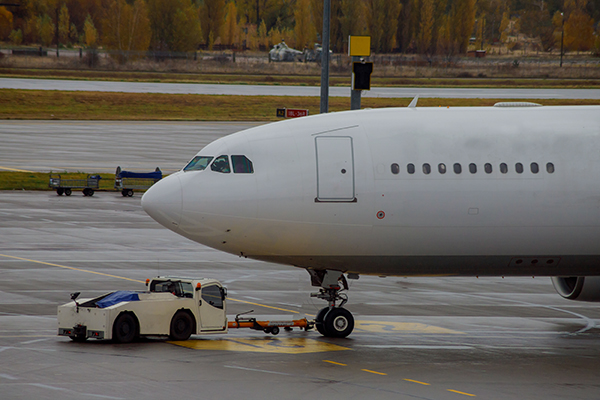The International Air Transport Association (IATA) forecasts the global airline industry net profit to be $35.5 billion in 2019, slightly ahead of the $32.3 billion expected net profit in 2018 (revised down from $33.8 billion forecast in June).
It is expected that 2019 will be the tenth year of profit and the fifth consecutive year where airlines deliver a return on capital that exceeds the industry's cost of capital, creating value for its investors.
“We had expected that rising costs would weaken profitability in 2019. But the sharp fall in oil prices and solid GDP growth projections have provided a buffer. So we are cautiously optimistic that the run of solid value creation for investors will continue for at least another year. But there are downside risks as the economic and political environments remain volatile,” said Alexandre de Juniac, IATA's Director General and CEO.
Performance Drivers in 2019
Economic Growth:
GDP is forecast to expand by 3.1% in 2019 (marginally below the 3.2% expansion in 2018). This slower but still robust growth is a main driver of continued solid profitability. There are significant downside risks to growth from trade wars and political uncertainties such as with BREXIT, but the consensus view is that these factors will not offset the positive impetus from expansionary fiscal policy and growing business investment in major economies.
Carrier pricing for air cargo shipments is also expected to remain on a steep trajectory, says Chuck Clowdis, managing director of the consultancy Trans-Logistics Group, Inc.
“We saw capacity beginning to exceed demand in December of 2018, but we believe that was only a temporary setback,” says Clowdis. “The explosive growth of on-line shopping alone will keep the air cargo sector very healthy in 2019.” He adds that air carriers are starting to use big data research in creative ways to increase cargo yields and introduce more velocity into shipper's supply chains.
Fuel Costs:
The 2019 industry outlook is based on an anticipated average oil price of $65/barrel (Brent) which is lower than the $73/barrel (Brent) experienced in 2018, following the increase in US oil output and rising oil inventories. This is welcome relief for airlines which have seen jet fuel prices fall, albeit at a slower pace owing to the impact of low-sulfur environmental measures undertaken by the marine sector that have increased demand for diesel (which competes with jet fuel for refinery capacity). Nonetheless, jet fuel prices are expected to average $81.3/barrel in 2019, lower than the $87.6/barrel average for 2018). The full impact of this decline will be delayed due to heavy levels of hedging in some regions. Fuel is expected to account for 24.2% of the average airline's operating costs (an increase from 23.5% forecast for 2018).
Labor:
Total employment by airlines is expected to reach 2.9 million in 2019, up 2.2% on 2018. Wages are also rising, reflecting the tightness of labor markets, and it is expected that unit labor costs will increase by 2.1% in 2019 after a long period of stability. Aviation jobs are getting more productive. In 2019 we expect productivity to increase by 2.9% to 535,000 available tonne kilometers/employee.
Cargo:
The 3.7% annual increase in cargo tonnage to 65.9 million tons is the slowest pace since 2016, reflecting the weak world trade environment impacted by increasing protectionism. Cargo yields are expected to grow by 2.0%. This is well below the exceptional 10% yield growth in 2018. It does, however, continue the recent strengthening of the cargo business, since cost increases are lower. Overall cargo revenues are expected to reach $116.1 billion (up from $109.8 billion in 2018).
SC
MR


Latest Supply Chain News
- How S&OP provides the answer to in-demand products
- AI, virtual reality is bringing experiential learning into the modern age
- Humanoid robots’ place in an intralogistics smart robot strategy
- Tips for CIOs to overcome technology talent acquisition troubles
- There is still work to do to achieve supply chain stability
- More News
Latest Podcast

 Explore
Explore
Business Management News
- How S&OP provides the answer to in-demand products
- AI, virtual reality is bringing experiential learning into the modern age
- Tips for CIOs to overcome technology talent acquisition troubles
- There is still work to do to achieve supply chain stability
- Blooming success: The vital role of S&OE in nurturing global supply chains
- Supply chain salaries, job satisfaction on the rise
- More Business Management
Latest Business Management Resources

Subscribe

Supply Chain Management Review delivers the best industry content.

Editors’ Picks





